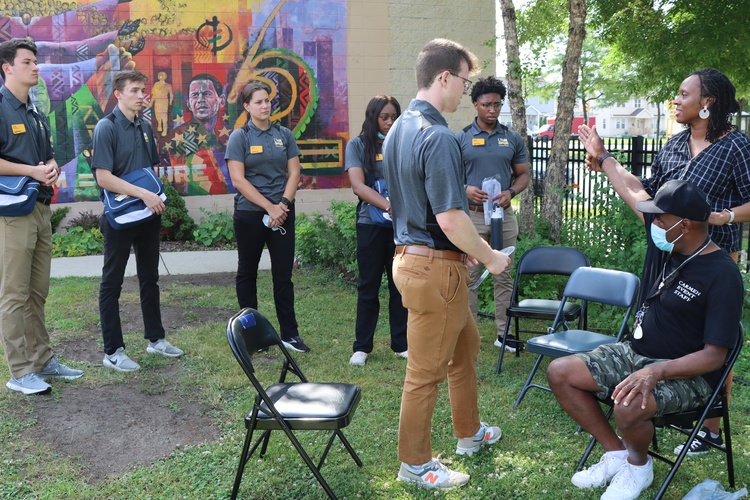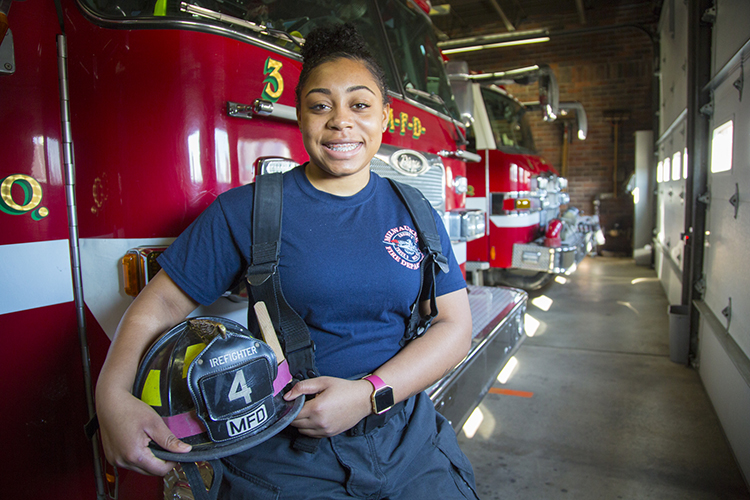Community
The faculty, staff and students of the College of Health Professions and Sciences are committed to improving the health and well-being of our communities through innovative research, outstanding education and exceptional services.
Please visit the websites of the schools in the College of Health Professions and Sciences to learn more.

Services, Clinics and Community Centers
The College of Health Professions and Sciences serves the UWM campus and greater Milwaukee community with the following services, clinics and centers.

Collaborations
This work is made possible through collaboration with many exceptional partners in the community.
The College of Health Professions and Sciences enjoys collaborating with hundreds of community partners through research, internships and clinical training, mentorship, scholarships and community advocacy. If you are interested in partnering, please contact the College of Health Professions by phone at 414-229-5047 or by email at uwmchps@uwm.edu.
The College of Health Professions and Sciences partners with UWM’s School of Continuing Education to provide community access to outstanding health-related educational programs and classes.
The Center for Community-Based Learning, Leadership, and Research partners with the community to inspire students, faculty and staff to engage in activities that foster enduring personal and social change.78
Community Research
The College of Health Professions and Sciences is doing cutting-edge research that is making a difference in the lives of people in Wisconsin and the world. Some of the diseases, conditions and topics our faculty, staff and students are investigating:
- Acute and critical care
- Injury prevention and rehabilitation
- Lyme disease
- Local to global community health
- Pain physiology
- Geriatric health
- Alternative antimicrobial treatments
- Vulnerable populations
- Child, family and reproductive Health
- Prostate cancer
- Voice and speech disorders
- Accessible design
- Applied sport psychology
- Molecular signaling mechanisms in disease
- Mortality
- Ergonomics
- Health care delivery and development
- Macular degeneration
- Motor development
- Self-management
- Antibiotic resistance
- Nutrition and obesity
Research Partnerships
The College of Health Sciences is a sponsoring member of Center for Urban Population Health. CUPH’s mission is to conduct and facilitate original population health research and educational initiatives that improve the health of urban communities through collaboration with academic and community organizations.
The Rehabilitation Research Design and Disability (R2D2) Center performs discovery, innovation, training and dissemination activities around technology and disability. Its projects focus on universal design, measurement and outcomes and assistive technology.
Many College of Health Sciences faculty are research partners of the Clinical and Translational Science Institute. Backed by $20 million from the National Institutes of Health, this consortium of eight Milwaukee institutions, including UWM, shares resources to accelerate the translation of research discoveries into new medical treatments. Other members are the Medical College of Wisconsin, Marquette University, Milwaukee School of Engineering, BloodCenter of Wisconsin, Children’s Hospital of Wisconsin, Froedtert Hospital and the Zablocki VA Medical Center.
